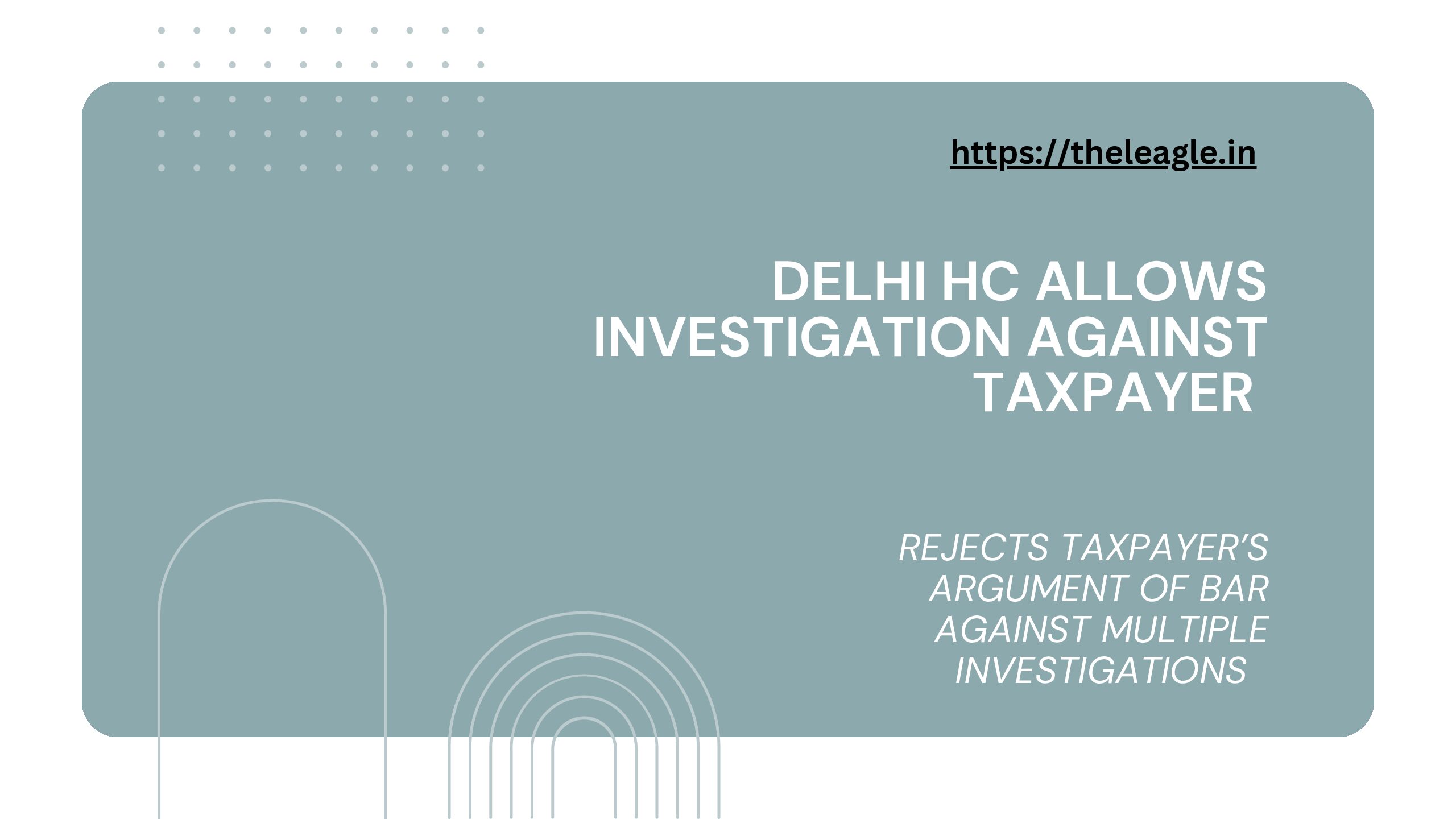In a recent judgment[1], the Delhi High Court interpreted the term ‘intelligence-based enforcement action’ and denied the petitioner’s prayer to stop investigation by multiple investigating agencies. The High Court held that merely because certain authorities took action against the petitioner did not mean that the investigation was carried out against the petitioner. It rejected the petitioner’s reliance on Section 6(2)(b) of CGST Act, 2017.
Facts
The petitioner filed a writ petition in the Delhi High Court praying for a writ of certiorari and that investigations started by various investigating agencies be quashed and set aside. The petitioner specifically objected to investigation initiated against it by the Directorate General of Goods and Service Tax, Jaipur (‘DGGI Jaipur’). The petitioner argued that it had already been investigated by the Delhi Commissionerate (‘Delhi State Authority’). The petitioner elaborated that its bank account had been blocked and GST registration cancelled by the Delhi State Authority after investigation had been carried out for its transactions with one M/s Girdhari Exports. The Delhi State Authority however argued that no investigation was carried out by it, and that its actions were after taken after receiving communication from DGGI, Jaipur and DGGI, Chennai. The latter also made similar statement and stated that no investigation was carried out against the petitioner.
Scope of Section 6(2)(b), CGST Act, 2017
The petitioner’s entire case was based on their understanding of Section 6(2)(b), CGST Act, 2017 and CBIC’s Circular dated 05.10.2018. Section 6(2)(b), CGST Act, 2017 states that:
Where a proper officer under the State Goods and Services Tax Act or the Union Territory Goods and Services Tax Act has initiated any proceedings on a subject matter, no proceedings shall be initiated by the proper officer under this Act on the same subject matter.
The afore-mentioned provision is aimed at preventing a taxpayer from being subjected to multiple proceedings at the Union and State level on the same subject matter. It was in furtherance of the said provision that CBIC issued a circular on 05.10.2018 clarifying that if an officer of the Central tax authority had initiated intelligence-based enforcement action against a taxpayer administratively assigned to the State tax authority, then it would not transfer the case to the State tax counterpart but instead take the case to its logical conclusion themselves. This was presumably to ensure continuity of proceedings against a taxpayer.
Relying on the above provision and the Circular, the petitioner argued that since investigation against it had been initiated by other State authorities, DGGI Jaipur could not initiate another investigation against it.
High Court Decides Against the Petitioner
The Delhi High Court rejected the petitioner’s arguments and held that:
… it is apparent that although certain measures were taken, which affected the petitioner – inasmuch as its ITC was blocked and the bank accounts were provisionally attached – no investigation was conducted by any authority regarding the affairs of the petitioner company. (para 13)
In view of the aforesaid, the High Court held that Section 6(2)(b), CGST Act, 2017 was not attracted. The High Court held that the Delhi State Authority – administratively concerned with the petitioner – had clarified that it had not conducted any investigation against the petitioner. The High Court further clarified that merely because the petitioner had the same principal place of business as other entities which were investigated, the petitioner cannot take advantage of the same. The petitioner had a separate tax registration and could be investigated by the DGGI, Jaipur.
Conclusion
The Delhi High Court’s opinion in the impugned judgment adopts a measured interpretation and understanding of Section 6(2)(b), CGST Act, 2017. The clarification by the High Court adopts a coherent view of investigation and did not accept the petitioner’s interpretation that any action against it could be termed as an intelligence-based enforcement action or an investigation-based action.
[1] M/S Hanuman Enterprises (OPC) Pvt Ltd v The Additional Director General Directorate General of GST, WP(C) 2900/2023 & CM Appl 11322/2022, available at https://www.livelaw.in/pdf_upload/ms-hanuman-enterprises-488982.pdf (Accessed on 13 September 2023).
